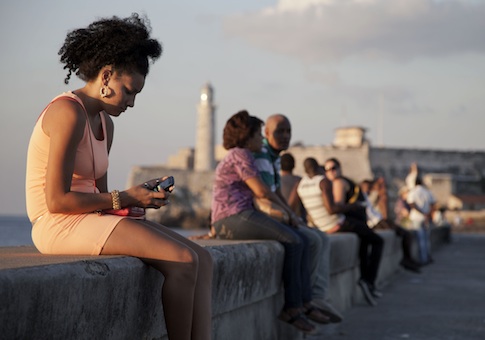Former and current U.S. Agency for International Development (USAID) officials are defending the agency’s controversial social media program in Cuba as a legitimate tool for promoting freedom of expression in the communist country.
The Associated Press reported last week that USAID oversaw the creation of a "Cuban Twitter" known as ZunZuneo—slang for a Cuban hummingbird’s tweet.
The program was designed to facilitate "non-controversial" conversations before eventually organizing "smart mobs" against the government, according to documents quoted by the Associated Press.
The social media platform gained more than 40,000 subscribers between 2010 and 2012 before running out of funding.
The report raised an outcry from some lawmakers who said they were not briefed on the social networking program.
However, both former and current USAID officials say the program was not covert. Lawmakers had the opportunity to receive briefings on the program, which was reviewed by the Government Accountability Office (GAO).
Jose Cardenas, former USAID acting assistant administrator for Latin America and the Caribbean during the George W. Bush administration, said in an interview that the technology component of the program was first implemented during his time at USAID.
Cardenas said the program appeared to be "so popular that the agency ran out of funds."
"The same people who laugh about poisoned cigars and exploding shellfish [allegedly used against the Castro brothers] are the same people who are mocking this program, when it fact it demonstrated the interest that the Cubans had in being able to communicate with one another," he said.
The program enabled Cubans to share mass text messages about news, the weather, and sports in a country where Internet access is restricted. A blog post by a USAID spokesperson on Monday disputed the notion that the program’s end goal was inciting "smart mobs."
Cuba "has the most restrictive laws on free speech and press freedom in the Americas," according to the pro-democracy group Freedom House.
While Cuban President Raul Castro and his daughter Mariela use Twitter accounts, social media sites remain widely inaccessible to Cuban citizens. Multiple journalists have been detained, beaten, and sentenced to jail for critical reporting.
"Nobody seems to find time to criticize the Castro regime for its repression of the Cuban people, but [critics of U.S. programs] always seem to find the time to criticize the U.S. for trying to do something about it," Cardenas said.
Sen. Patrick Leahy (D., Vt.) has been one of the most vocal critics of the social media program in Cuba, calling it "dumb, dumb, dumb" in an MSBNC interview last week.
"If you’re going to do a covert operation like this for regime change, assuming it ever makes any sense, it’s not something that should be done through USAID," said Leahy, who serves as chairman of the Senate Appropriations Subcommittee on State and Foreign Operations. "They do a lot of great things around the world. … This is not one of them."
USAID spokesperson Matt Herrick said the program was included in public budget requests and deemed legal by GAO in 2013.
"The GAO identified no concerns in the report about the legality of USAID’s programs, including ZunZuneo, and offered USAID zero recommendations for improvements," he wrote.
Cardenas said Leahy’s staff did not request a briefing on the technological aspects of the USAID program during the Bush administration, unlike the House and Senate committees on foreign affairs. State Department spokeswoman Marie Harf also said U.S. officials offered to brief appropriators on the program.
A spokesperson for Leahy did not respond to a request for comment and directed the Washington Free Beacon to his previous interviews.
USAID administrator Rajiv Shah, who has said the Associated Press report had "a number of significant inaccuracies," will testify before Leahy’s subcommittee on Tuesday.
